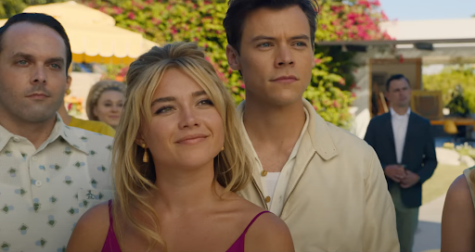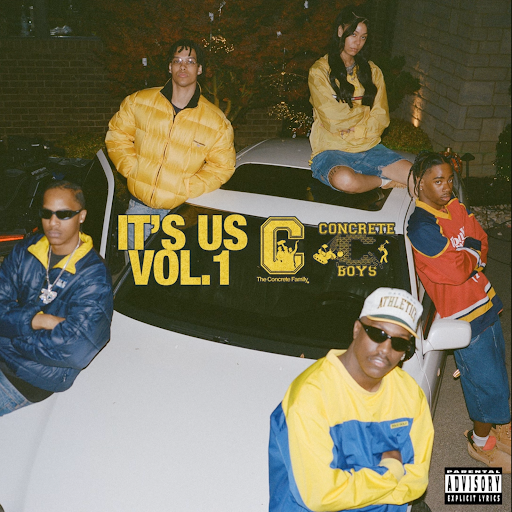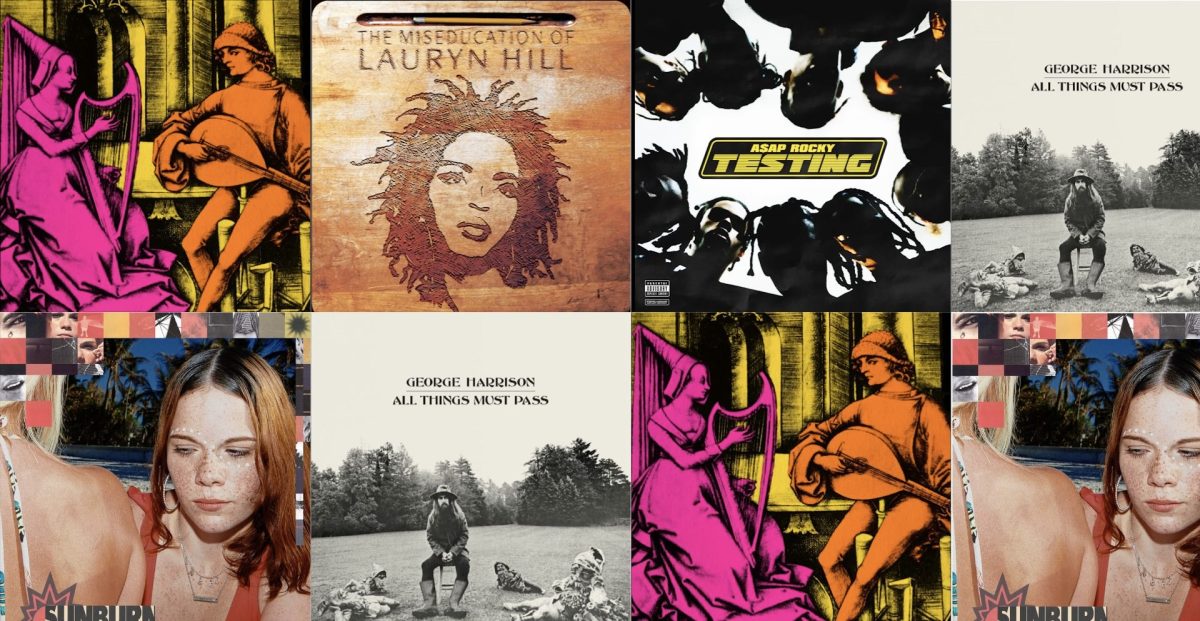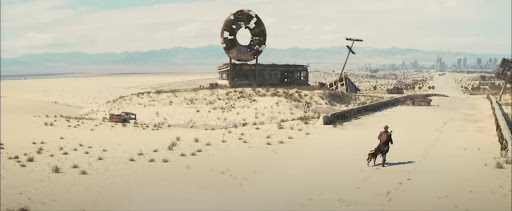
When caught up in the countless headlines stemming from “Don’t Worry Darling’s” production and media tour, the concept of any press being good press quickly comes to mind. Director Olivia Wilde’s latest project has been talked to death, but in the process has cemented itself as one of the most anticipated films of the year.
The film was shown in over 100 IMAX theaters nationwide on Sept. 19, four nights prior to its scheduled release date. Audiences, including my own at AMC Fresh Meadows 7, were treated to a live-streamed Q&A with members of the cast beforehand. Stars in attendance included Harry Styles, Gemma Chan, Nick Kroll, Sydney Chandler, Kate Berlant, Asif Ali, Douglas Smith and Dita Von Teese. Wilde also took part and, to the delight of the gossiping crowd in Fresh Meadows, sat on the opposite end of the row from Styles.
The Q&A did not provide any additional drama to the release’s pre-existing storylines, though its participants did not seem to have nearly as much fun as the audience did. There was an underlying tension to their interactions, something that could be suspected to be burnout from an especially awkward press tour. Styles in particular failed to supply much insight in his responses, defaulting to answers similar to his viral moment in Venice alongside Chris Pine. Florence Pugh and Chris Pine were unable to attend due to scheduling conflicts, but each had pre-recorded video messages for the audience.
As the film began to roll, the aesthetic was firmly established in the opening scene. The town of Victory and its dynamics were easily laid out, allowing for a true focus on Pugh’s Alice. This centering, of course, includes plenty of screen time for her husband Jack, played by Styles. One character refers to their relationship as a never ending honeymoon, something especially evident during — let’s say — an R-rated scene moments later. Their raunchy behavior early in the film is a massive contrast to the rest of the film’s tone, something that leads me to question its inclusion in the film. Combine that with the film’s well-documented controversies, and I cannot help but question Wilde’s decision-making on that front.
But alas, the couple’s honeymoon feeling fades soon after. Suspicions of foul play and wrongdoing are confirmed early, though audiences remain unprepared for what comes next at every turn.
Pugh turns in an excellent performance as a character the audience cannot help but root for. Her paranoia runs parallel to that of those in the theater, amplifying her actions and what happens to her. Her counterparts do not provide her much to play off of which, funny enough, actually enhances the film by creating a true spotlight on her character in what is supposed to be a paradise world.
The anticipation many have to see Styles in this film is surely understandable. On a positive note, he certainly exceeded expectations, albeit they were very low. Some have described him as “distractingly bad,” though that is an unfair assessment stemming from what those people expected — and wanted — to see.
Styles cannot be let off the hook entirely, though. In one particular scene, his acting truly hindered the seriousness of the moment. Though memorable and fun for the Styles fandom in attendance, others will certainly use it as ammunition against him. With Styles as famous as he is today,there is not a true neutral party when it comes to assessing his acting. With that being said, his character and presence was enjoyable, even with very noticeable flaws.
Another aspect of the film that stands out is its sound mixing. While certainly intensified by an IMAX theater, background noise and music played a massive role in conveying a feeling of paranoia, dread and fear to the audience. Though the film is certainly a thriller rather than a horror movie, its attention to detail in both sound and imagery enhances the experience tenfold. When asked for advice to those about to see the movie, Wilde warned viewers of the Q&A to listen closely and not blink. I could not agree more, at least until the ending.
What ultimately detracts from the stunning plot twists of “Don’t Worry Darling” is poor technical execution in the final act. As the film’s final impression on the audience, this is where any and all bad reviews come from. Its action is poorly coordinated, creating laughable moments that contradict the film’s entire buildup. It leads one to truly question Wilde and her crew, as they had done fairly well to that point before striking out completely on the final sequences. Thankfully, its flaws can be partially masked by the audience’s focus on Pugh’s character and the plot’s massive twists.
“Don’t Worry Darling” will hopefully be remembered for its fantastic plot, rather than its cinematic shortcomings. Some moviegoers may find themselves asking “What if?” when considering what another director, perhaps one whose resume extends beyond a coming-of-age film like “Booksmart,” could have done with this story.
“Don’t Worry Darling” hits theaters Sept. 23.
As an important note, the film includes elements of self-harm that may be disturbing to some audiences. The National Suicide Prevention Lifeline is a hotline for individuals in crisis or for those looking to help someone else. To speak with a certified listener, call 1-800-273-8255.














